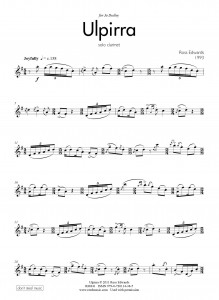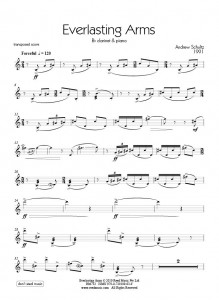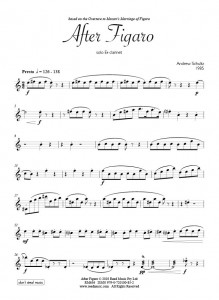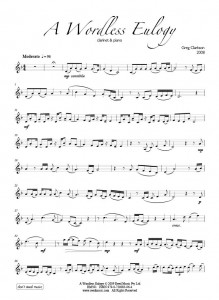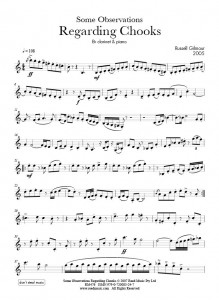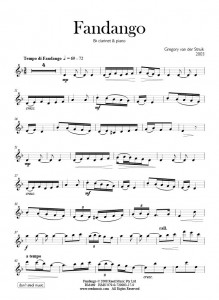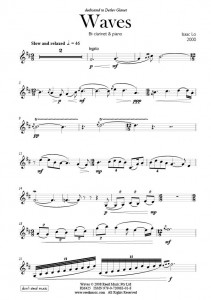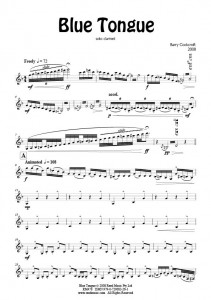
Performed by Barry Cockcroft
Blue Tongue is a solo piece in a blues style with a theatrical element to be performed with a sense of humour. After a brief rubato introduction, the rhythm and pulse must remain relentless with a gradual increase in the dynamics and intensity of the piece. From figure D the clarinetist should gradually disassemble their instrument while playing. As the instrument gets shorter, the music should maintain its flow right up to the final note played on just the mouthpiece. The actual pitch in the final section will depend upon the particular instrument of each player, so don’t be too concerned with precision of pitch, the gesture is more important. The written notes indicate the fingering to be used rather than the exact pitch. Ample amounts of cork grease may be required to ensure that the clarinet comes apart smoothly and quickly.
Breathing and phrasing will depend upon each individual clarinetist. Bracketed notes may be omitted to allow for quick breaths if required. Grace notes can be lazy, tremolos should be played fast, articulation crisp rather than legato and slides should be played smoothly like a portamento. If the slides are impractical, the alternate written notes may be played.
The piece should be played with a sense of humour and creative ways of taking apart the clarinet could be employed. For example, gradually putting the pieces of the clarinet into the case and then walking off stage at the end...

